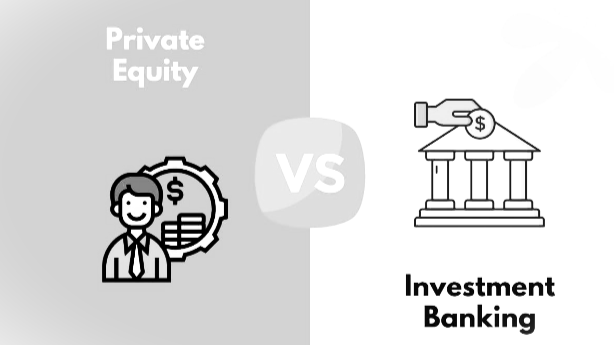Economic stability and growth encourage investors to pursue various wealth-creation strategies while allowing businesses greater access to much-needed capital support. In this regard, investment banks (IBs) and private equity firms seem to be significant players. After all, they have a remarkable impact on capital markets, enabling economic growth. Many sectors thrive because of them. This post will explain how private equity and investment banking drive global financial growth.
What is the Role of Private Equity in Financial Growth?
Private equity (PE) companies excel at facilitating economic growth through investment in companies at different stages of development. Versatile private equity services help pension funds, institutional investors, and high-net-worth individuals or HNWIs to invest in companies. Their objective is to increase the acquired businesses’ value. Doing so implies investors get better returns after the exit when they sell the developed business to others or issue initial public offerings (IPOs).
PE firms’ major contributions towards global financial growth essentially deliver seamless business renewal. By pouring capital and strategic guidance, private equity stakeholders breathe new life into low-performing corporations. Their decisions aimed at value enrichment post-acquisition enable each portfolio company to realize its true potential.
Strategies that PE firms often use include transforming operations, cutting expenses, and launching innovative growth initiatives. As a direct outcome, organizations witness improvement in resilience against distress. They can settle debt, qualify for newer loans, and create more jobs to promote economic activity.
How Does Investment Banking Fuel the Global Financial Markets’ Growth?
Investment banking is vital to streamlining corporate finance deals. That is why its contribution to keeping markets efficient is well-recognized. IB professionals offer advisory work to business firms, government institutions, and accredited investors. Their assistance helps stakeholders raise funds. Besides, corporate leaders prefer investment banking outsourcing to make mergers and acquisitions (M&A) deals succeed.
Risk estimation and pitch book creation are standard capabilities that an IB professional possesses. In addition to market-making activities concerning IPO undersubscription prevention, investment bankers guide businesses on ownership structure modification. Moreover, IBs are fundamental to privatizing public companies and helping unlisted companies go public.
In the latter case, issuing stocks or bonds becomes hassle-free when an investment bank is overseeing the process. Among the alternative roles, capital raising is among the key areas where investment bankers shine.
By facilitating strategic alliances and consolidations via M&A deals, investment banks enable businesses to benefit from economies of scale. Therefore, companies can broaden and reinforce their market presence. At the same time, market stability and investor sentiments exhibit positive trends as enterprises become more profitable.
Conclusion
Private equity and investment banking perform identical duties to accelerate global financial growth. Investment banks might collaborate with PE companies to structure deals. They also excel at due diligence and raising capital to finance corporate acquisitions. Likewise, when private equity companies are ready to exit an investment, investment bankers can aid the stakeholders in conducting public offerings or brokering sales to other investors.
IBs and PE firms enable investors and business owners to create value and modify reinvestment methods that support economic advancement. Their capabilities allow the world’s financial system to continue to be responsive to evolving market needs.





Comments